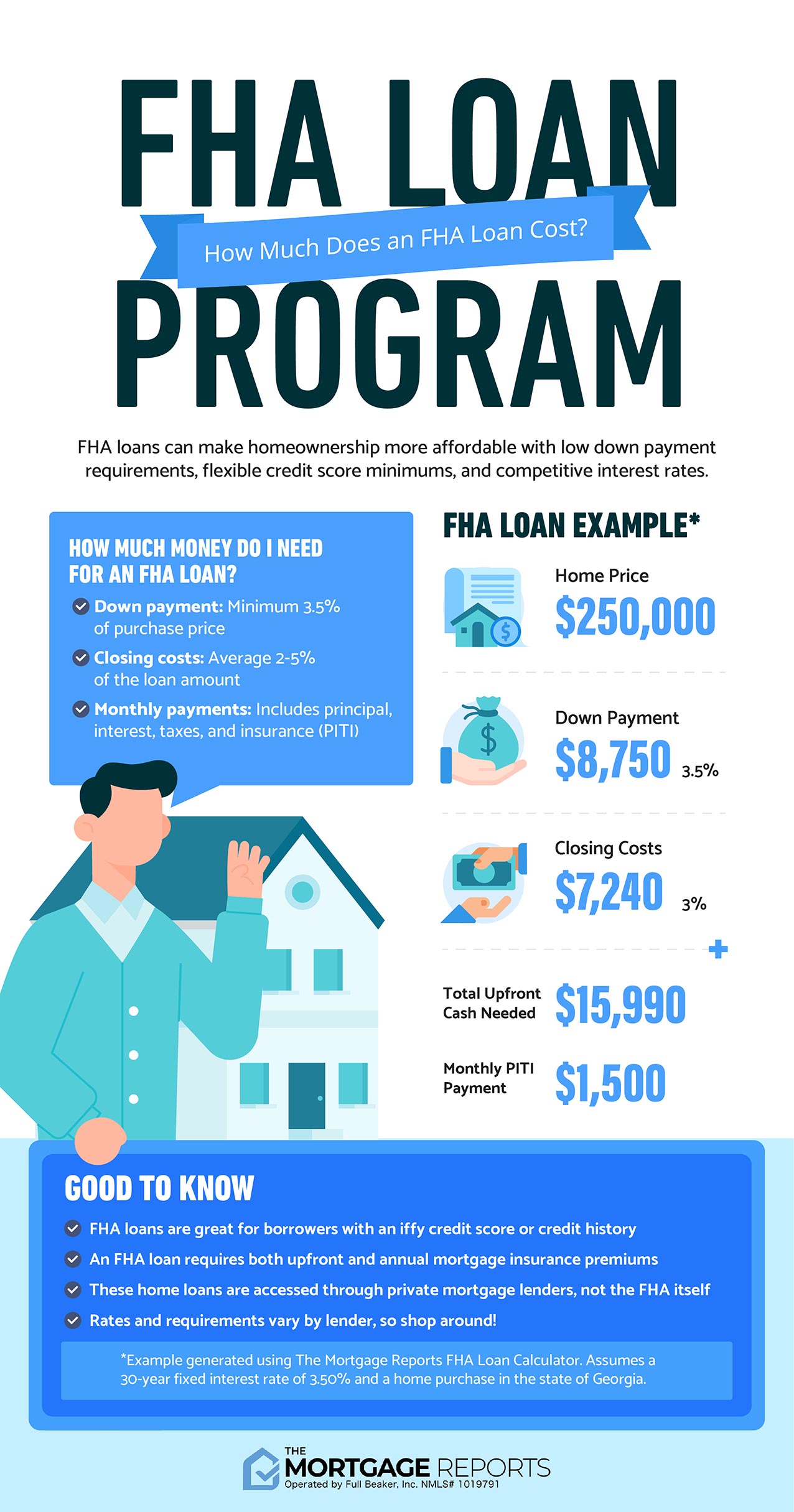Check Out FHA Home Loans: Ideal for Low and Moderate-Income Consumers
Check Out FHA Home Loans: Ideal for Low and Moderate-Income Consumers
Blog Article
Home Mortgage Demystified: A Thorough Examination of Car Loan Programs Tailored to Fit Your Financial Situation and Goals
Browsing the landscape of mortgage frequently provides a complicated challenge, worsened by a myriad of programs designed to meet varied economic demands. Comprehending the distinctions in between fixed-rate and adjustable-rate home loans, as well as government-backed options like FHA and VA car loans, is vital for making notified choices. Each program provides one-of-a-kind advantages tailored to certain situations, yet the intricacy of eligibility demands and rate of interest prices can cover quality. As we check out these ins and outs, one need to consider just how to align these alternatives with individual economic goals to unlock the most advantageous pathway to homeownership.
Understanding Mortgage Fundamentals
Although many people desire homeownership, understanding the fundamentals of home finances is critical to making educated monetary decisions. A home mortgage, also referred to as a home loan, is a financial item that permits individuals to obtain money to purchase actual estate. The customer is called for to pay back the lending amount, in addition to interest, over a collection period, generally ranging from 15 to three decades.
Key components of home loans include the principal, which is the amount obtained, and the passion price, which determines the expense of loaning. Lenders examine various variables, such as debt score, debt-to-income, and earnings proportion, to identify eligibility and financing terms. Additionally, borrowers must recognize the relevance of down settlements, which can influence lending approval and affect regular monthly repayments.
Recognizing financing amortization is additionally important; this describes the gradual reduction of the loan equilibrium with time with routine payments. By understanding these fundamental principles, prospective house owners can browse the home mortgage landscape better, eventually resulting in much better monetary end results and a more successful home-buying experience.
Sorts Of Home Mortgage Financings
When discovering the landscape of home funding, recognizing the various sorts of mortgage is important for making an enlightened choice. Mortgage can mainly be classified into fixed-rate and adjustable-rate mortgages (ARMs) Fixed-rate home mortgages supply a consistent passion price and month-to-month repayment over the finance's term, supplying security, commonly for 15 to thirty years. This predictability interest homeowners who choose budgeting assurance.
Alternatively, ARMs have rate of interest that fluctuate based on market conditions, generally beginning less than fixed-rate choices. These prices can adjust regularly, possibly enhancing regular monthly repayments over time. Consumers that expect moving or refinancing prior to significant rate changes may find ARMs beneficial.
In addition, government-backed finances, such as FHA, VA, and USDA financings, satisfy particular demographics and use various advantages like lower deposits and flexible credit history requirements. Standard fundings, not insured by the federal government, commonly require greater credit score ratings yet can give competitive rates for solvent consumers - FHA home loans. Understanding these finance kinds enables possible home owners to pick the home mortgage that lines up ideal with their monetary situation and long-term objectives
Key Qualification Requirements
Browsing the eligibility demands for a home loan is an important action in the home-buying process. Recognizing these requirements can considerably streamline your application and boost your opportunities of authorization.
The primary aspects influencing qualification include credit report, income stability, debt-to-income (DTI) proportion, employment background, and deposit amount. The majority of loan providers need a minimum debt rating of 620 for conventional fundings, while government-backed finances might have extra lax criteria. A secure revenue, demonstrated via constant employment or self-employment documents, is vital for lenders to analyze your capability to pay off the lending.
The DTI ratio, which compares your regular monthly financial obligation repayments to your gross month-to-month revenue, normally should not go beyond 43%, though some loan providers might enable higher proportions in certain situations. Furthermore, the size of your deposit can impact eligibility; while a bigger down repayment may improve your possibilities, certain programs provide options for marginal deposits.
Lastly, loan providers will certainly assess your overall financial profile, consisting of offered properties and obligations, to ensure you are economically with the ability of preserving homeownership. Acquainting on your own with these key eligibility demands will certainly empower you in the home home loan application trip.

Rates Of Interest Clarified
Comprehending the ins and outs of rates of interest is basic to making educated choices in the home financing procedure. Rate of interest represent the price of obtaining money and are shared as a percent of the financing quantity. They can dramatically affect your monthly mortgage settlements and the general cost of your mortgage.
Rate of interest can be categorized right into taken care of and adjustable rates. Taken care of prices continue to be constant throughout the finance term, offering predictability in regular monthly settlements. Alternatively, flexible rates change based upon market conditions, which can lead to lower initial repayments however might increase in time.
A number of aspects influence interest prices, consisting of the debtor's credit rating, funding term, and dominating financial conditions. Lenders analyze these elements to figure out the risk associated with providing to a specific debtor. Normally, a higher credit history can cause reduced try this passion rates, while longer lending terms may result in greater prices.
Additionally, wider financial indications, such as inflation and financial policy, play a critical function fit interest prices. Understanding these aspects permits borrowers to much better browse the loaning landscape and choose alternatives that line up with their economic objectives.
Choosing the Right Finance Program
Selecting the suitable loan program is crucial for debtors intending to maximize their funding choices. With various loan kinds available, including fixed-rate, adjustable-rate, FHA, and VA lendings, recognizing the subtleties of each can considerably affect long-lasting monetary health and wellness.
Debtors must first examine their monetary situation, consisting find of credit rating, income stability, and debt-to-income ratios (FHA home loans). A fixed-rate home loan offers predictability with constant month-to-month payments, ideal for those planning to remain in their homes lasting. On the other hand, adjustable-rate mortgages may supply reduced preliminary rates, interesting buyers who expect moving within a few years
Additionally, government-backed car loans such as FHA and VA options can be valuable for newbie homebuyers or veterans, as they commonly call for lower deposits and have extra lenient credit demands.

Verdict
In conclusion, browsing the intricacies of home finances requires an extensive understanding of numerous home mortgage programs and their distinct features. By reviewing individual monetary circumstances and objectives, possible customers can make educated choices pertaining to the most ideal loan options.
Fixed-rate mortgages provide a constant rate of interest rate and regular monthly payment over the finance's term, supplying security, typically for 15 to 30 years.Furthermore, government-backed finances, such as FHA, VA, and USDA financings, cater to specific demographics and offer various advantages like reduced down payments and flexible credit rating requirements. The majority of lending institutions require a minimum credit scores rating of 620 for standard lendings, while government-backed lendings might have more lenient standards. Repaired prices continue to be continuous throughout the financing term, giving predictability in regular monthly payments. Typically, a higher credit report rating can lead to lower interest rates, while longer financing terms may result in higher rates.
Report this page